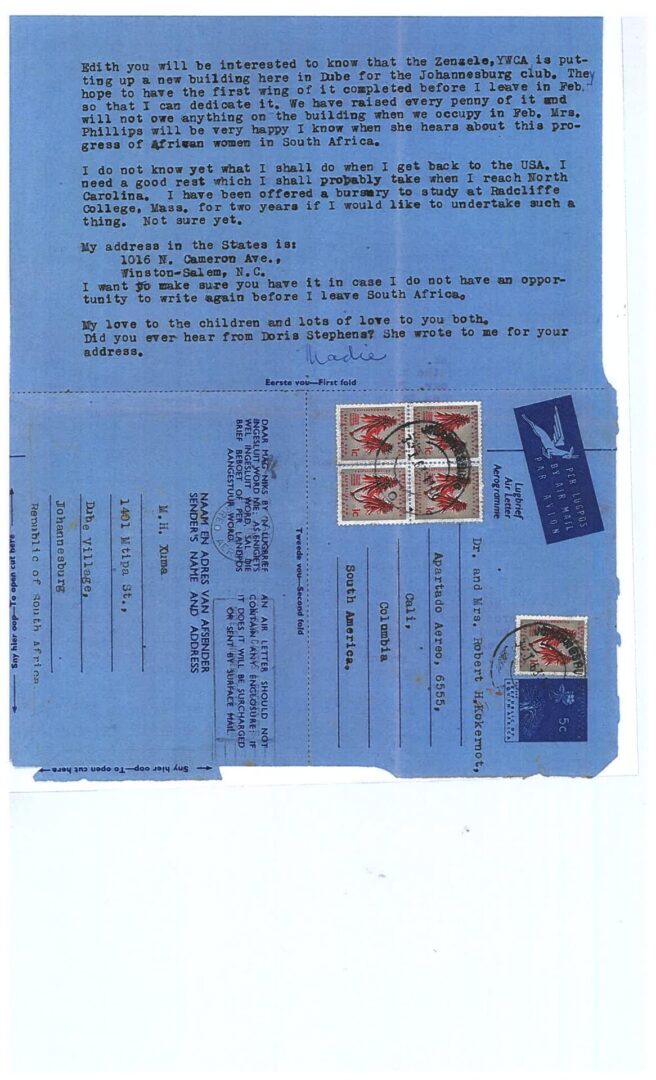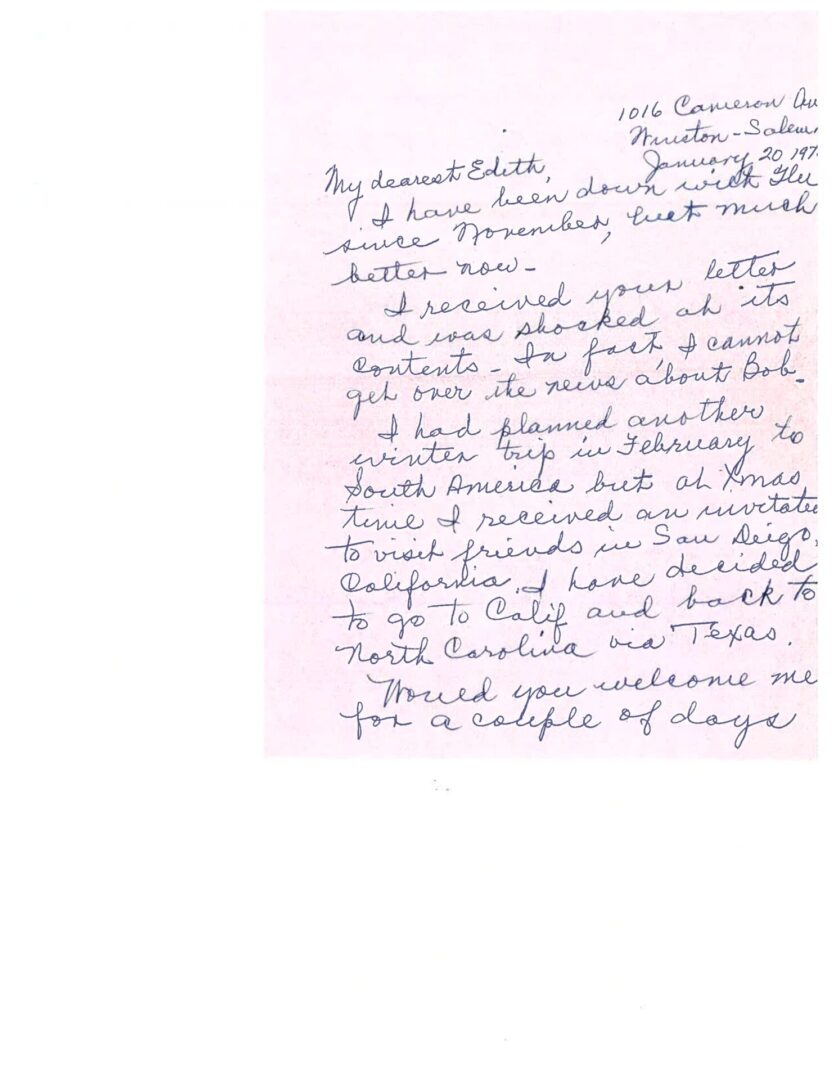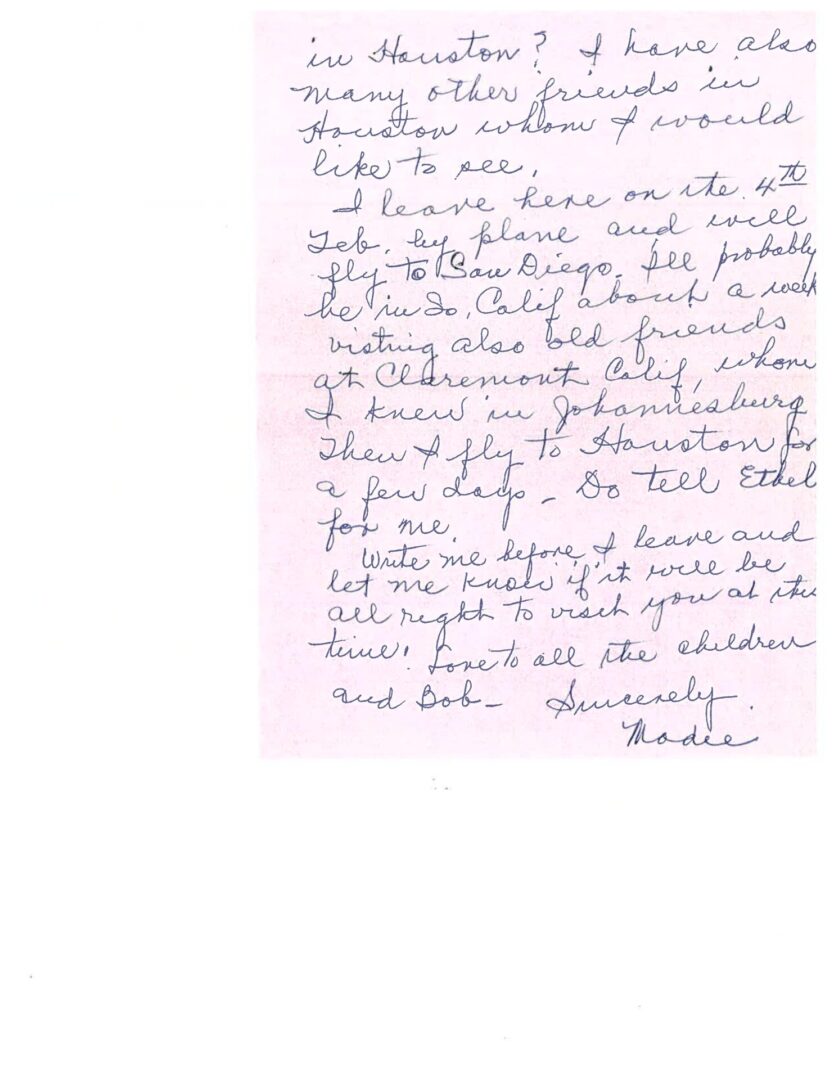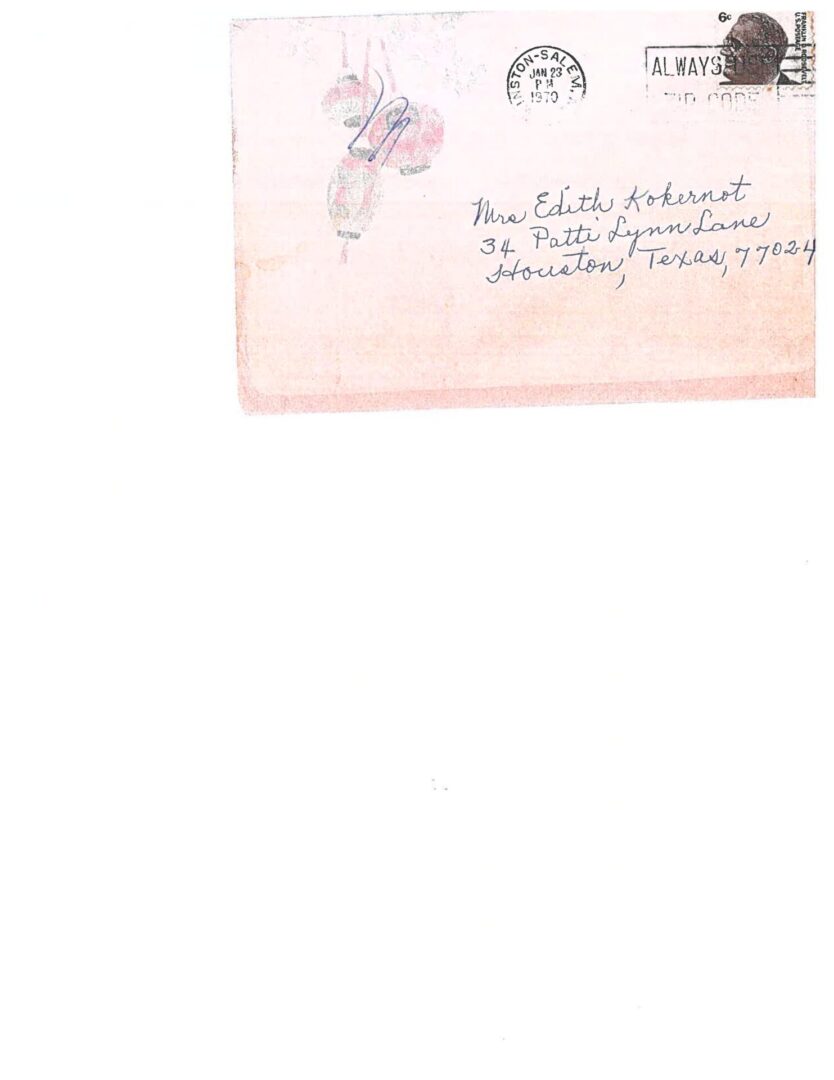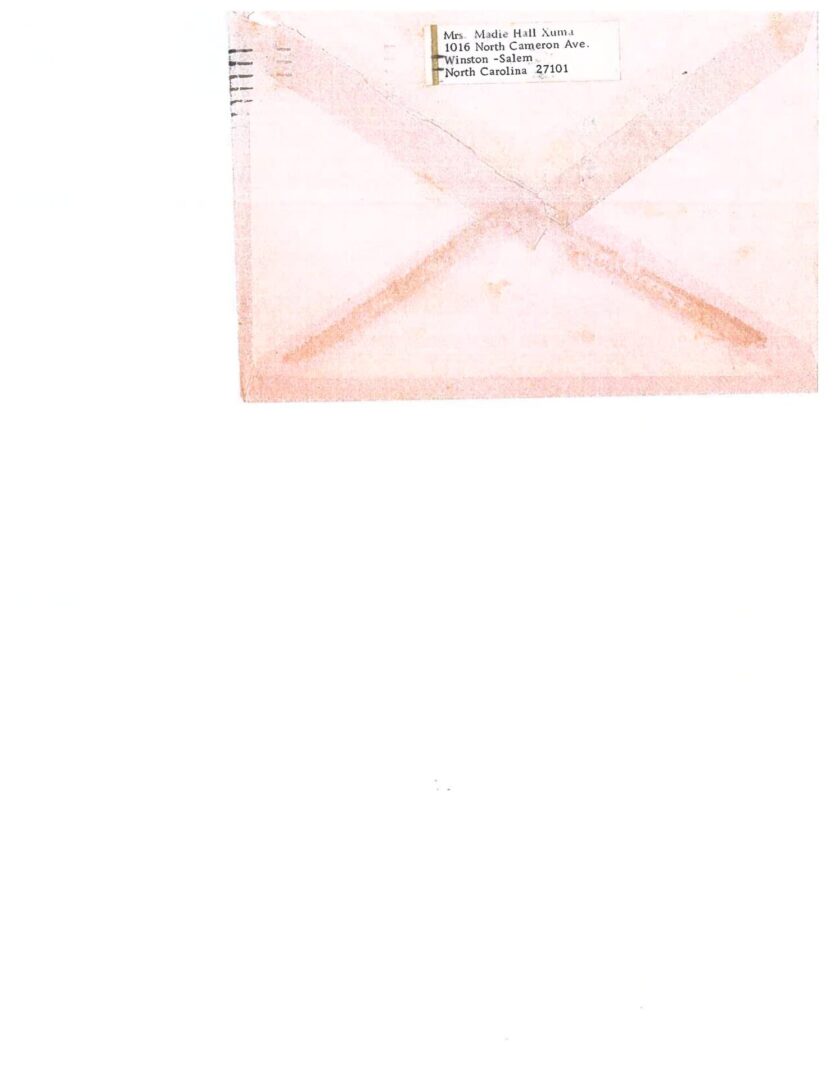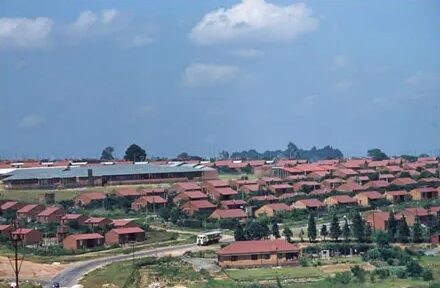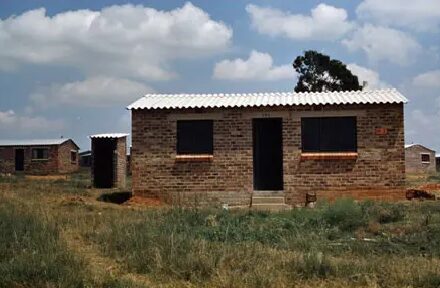Written in 1967 and submitted for as part of the Association of University Women Writers’ Project based in Washington, DC. Edith and family were living in Champaign, Illinois at the time.
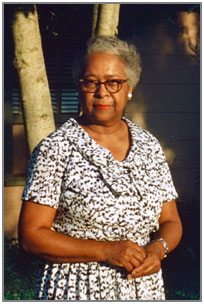
It was Mrs. Xuma who first caught my eye. She looked so familiar, yet so strange in this multi-racial group. I saw her as we were leaving a Defiance Campaign* meeting in Johannesburg, South Africa. It was unusual to be able to attend a meeting where all ethnic groups were welcome, but this one was in 1954 before more stringent South African laws of apartheid were passed. We had been introduced to the possibilities of such gatherings by Dr. and Mrs. Ray Phillips, long time Congregational missionaries and educators in South Africa. This particular night we had gone to hear Dr. Emory Ross whom we had met in New York and through whom we had met the Phillips’.
As I watched Mrs. Xuma embrace Dr. and Mrs. Phillips, I was sure I detected an American Southern accent. All the Africans I had heard spoke in clipped British South African accents when speaking English. South Africans designated anyone having white and Negro blood as Coloured, a step above pure African. I wondered what an American Negro would be doing in this land of apartheid. People leaving the auditorium were pushing past us. I made my way over to the Phillips to thank them for inviting us to the lecture.
As we approached, Mrs. Phillips called to us and said, “I do want you to meet a dear friend of ours, Mrs. Xuma. She has just returned to South Africa from the world YWCA meeting in Geneva. I want you to get to know the Xuma’s. Won’t you come along to our house for coffee and cake so you can get better acquainted. Several of our friends are coming.”
This was the beginning of one of the most unusual and treasured friendships we were to have during our seven years in South Africa.Mrs. Xuma was tastefully dressed; grey wisps of hair, neatly waved, showed beneath her fashionable hat. As we stood there many people, black and white, stopped to greet her. Her voice was one of warmth and sincerity; her laugh and smile infectious.
When we arrived at the Phillips house, Mrs. Xuma was already at the door greeting old friends. When she saw us, she said, “I want you to meet my husband. Doctor, come here!” A distinguished looking African of average build came toward us. He had a big smile on his face. His handshake was firm and sure. From that day on, I never heard her call him anything but Doctor. Though Mrs. Xuma and I were on first name basis before the end of the evening, he remained Dr. Xuma to me and my husband, although he affectionately called my husband, Doctor Bob. We had met few Americans in South Africa. There were many Americans there and easy to find through various clubs, embassies, etc., but we had decided beforehand that we would try to get to know South Africans first for fear we otherwise would be caught up in an American way of viewing things.
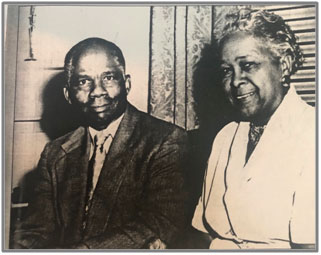
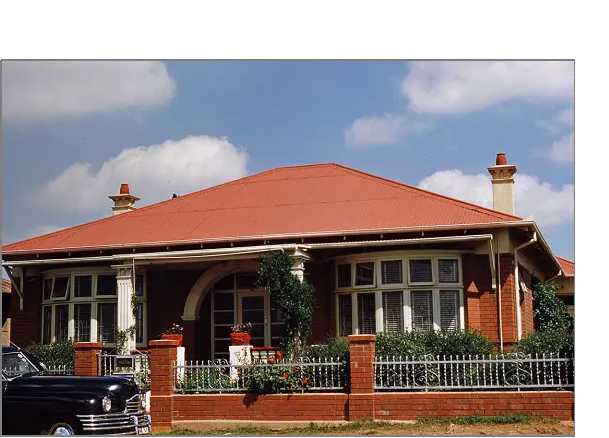
This photograph was taken by Robert on one of the family visits to Sophiatown in the mid-1950's. The Kokernot's car is parked in front of the Xuma's home.
Edith, Bob and their two young children shared an American Thanksgiving with the Xuma’s at their home in 1954. Shortly thereafter, his property was expropriated when Sophiatown was declared a White area in terms of the Native Resettlement Act of 1954. The Xuma’s vacated their home by 1957. It was one of two houses to escape the destruction of Sophiatown, South Africa by the government in the late 1950’s. The house was a mansion in the Sophiatown of its day. The home is a national landmark for this inspirational medical doctor and former president of the African National Congress. Currently the house is the location of the Sophiatown Heritage and Cultural Centre.
The path that preceded the Kokernot-Xuma friendship: Prior to departure from New York for South Africa, Edith and Robert met Dr. and Mrs. Emory Ross. On their initial TransAtlantic voyage to SA (22 years prior), they met another missionary couple, Dr. and Mrs. Ray Phillips who eventually settled in South Africa. Dr. Phillips was Director of the Jan H. Hofmeyer School of Social Studies, established in 1940 by the YMCA to train social welfare workers for service among non-European people. It was through Dr. Phillips, who after 36 years of service had a keen insight into the problems of the African population, that Edith and Robert were given tours of several African Townships ('Native Locations') around Johannesburg. This association with the Phillips' offered a clearer perspective and a more realistic view of South African society.
Defiance Campaign: launched by the ANC in 1952, it gained support across South Africa from blacks, Indians, a few coloureds and whites. People were called on to break unjust apartheid laws and offer themselves up for arrest. The idea behind the campaign was that jails would become too full and the police service would be thrown into chaos. The African National Congress Women’s League was very much involved in the campaign.
https://www.sahistory.org.za/article/anc-and-early-development-apartheid-1948-1950s
The destruction of Sophiatown and ‘relocation’ (forced removal) of blacks under apartheid when the National Party came to power in 1948, hence Soweto (South Western Townships).
Madie Hall Xuma and her husband, Dr. Alfred Bitini Xuma, corresponded with Edith and Robert Kokernot for several years. The following is a sampling of letters received from Madie Xuma between the years 1959 to 1970.
Madie Xuma writes to Edith from Winston-Salem, North Carolina (August 6, 1959). She has been doing some work, visiting and purchasing various household items to take back to South Africa in September.
(note: Kokernot is inadvertently spelled 'Kokernut' on the envelope.)
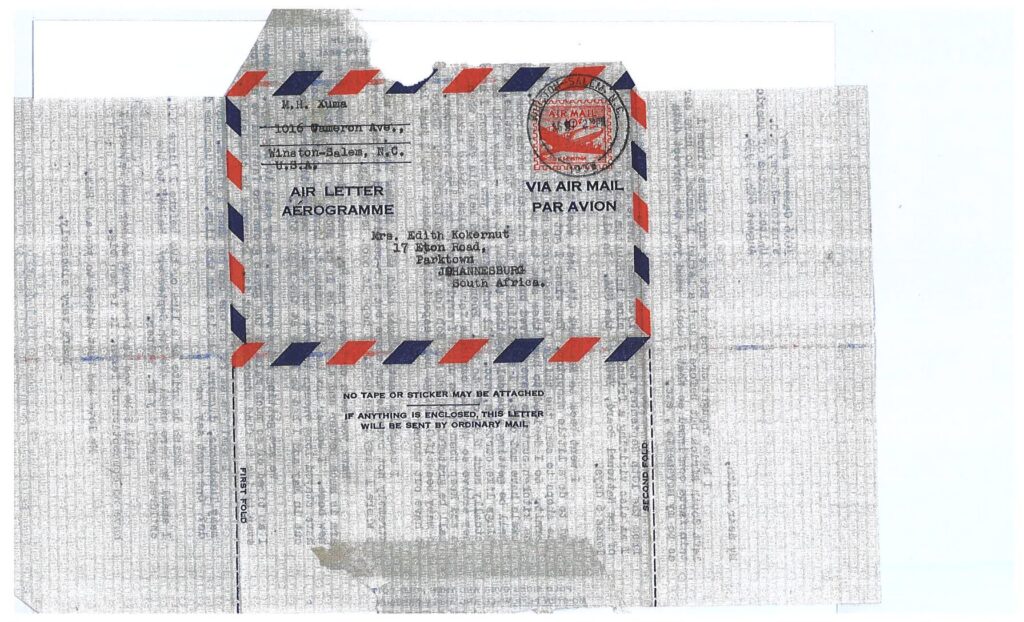
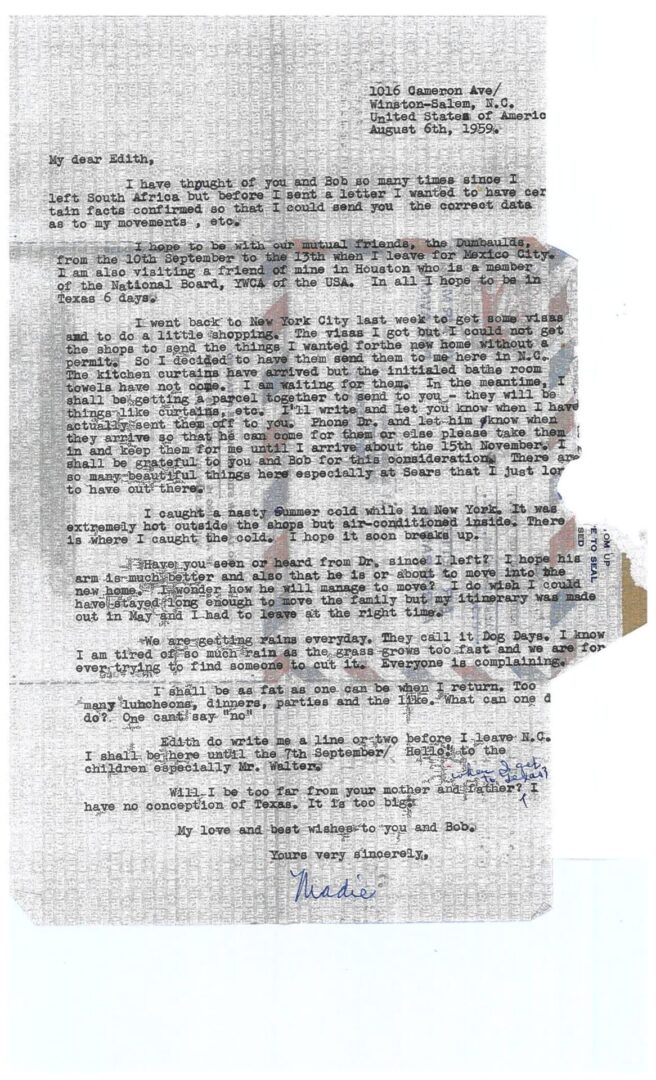
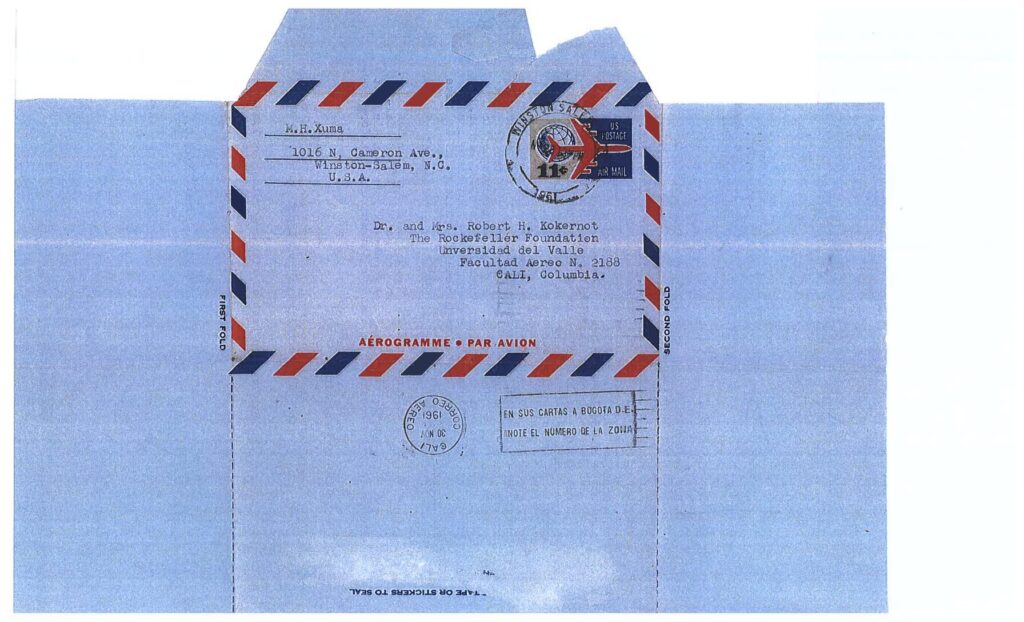
Madie Xuma writes Edith and Bob from North Carolina (November 27, 1961). The family left South Africa the previous year with a brief stay in Baltimore before being stationed in Cali, Colombia by the Rockefeller Foundation. Both Madie and her husband 'Doctor' have been ill. She hopes to return to South Africa early in the New Year.
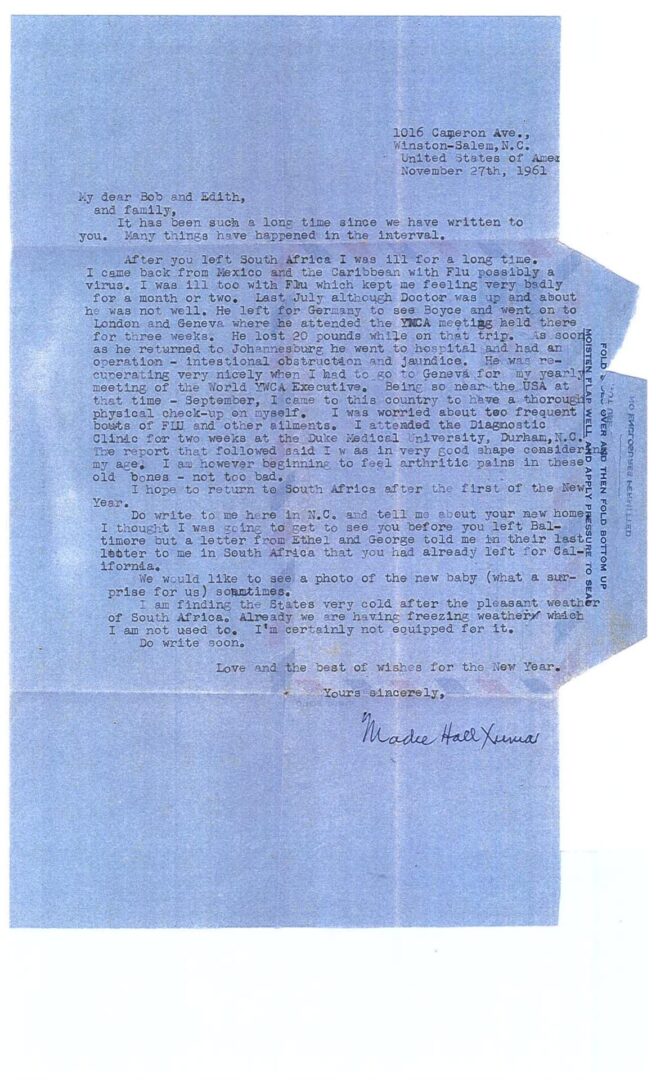
Madie Xuma writes Edith and Bob from Johannesburg (November 24, 1962). Her husband to whom she refers as 'Doctor' is critically ill with cancer. She expresses concern for daughter, Kuku. Additionally, Madie shares news of the ongoing effort to build a new YWCA for African women in Dube Village, as well as the volatile political climate in South Africa.
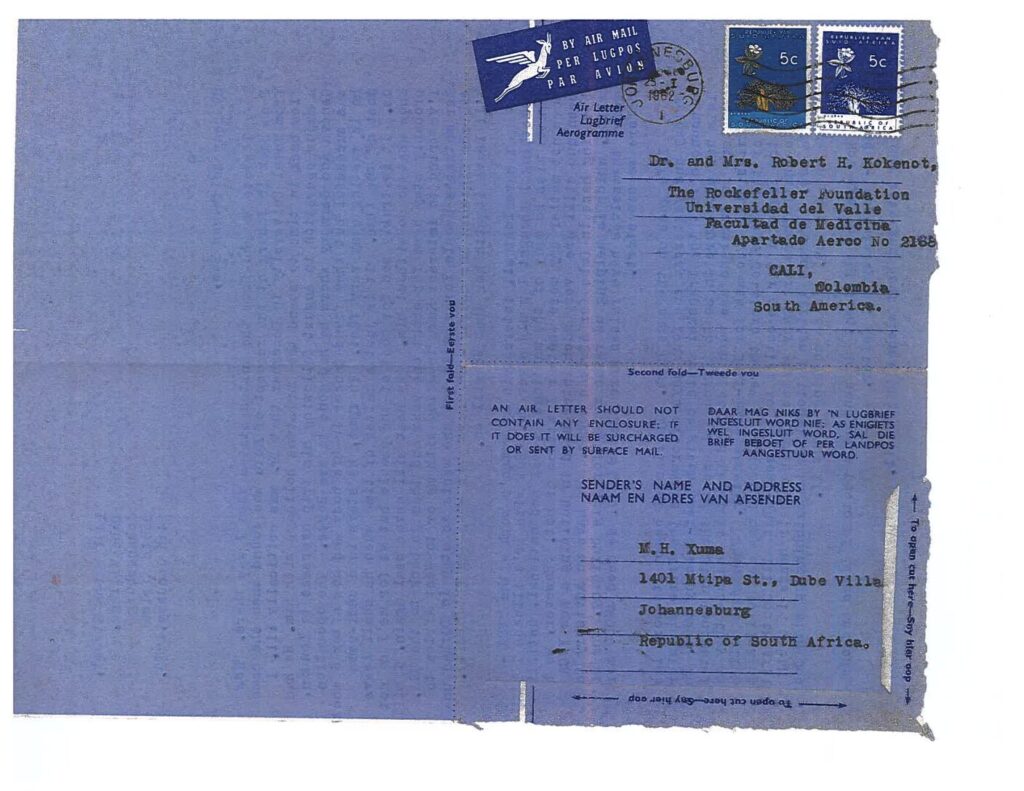
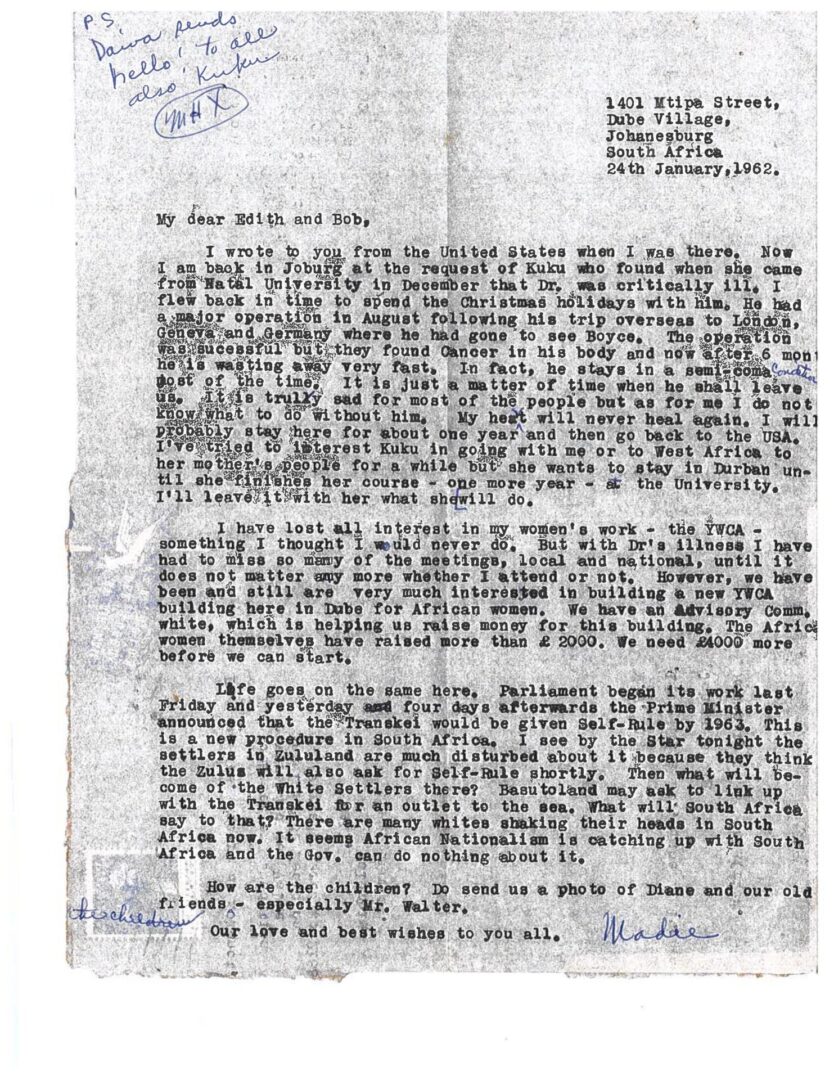
Madie Xuma's letter describes the stress of her pending move to North Carolina in the next month in this letter dated January 2, 1963. She is settling her estate after the passing of her husband. Madie shares news of Kuku and the difficulties she bears as a parent. In addition, Madie updates Edith regarding the Zenzele YWCA adding a new building in Dube Village for the Johannesburg club.
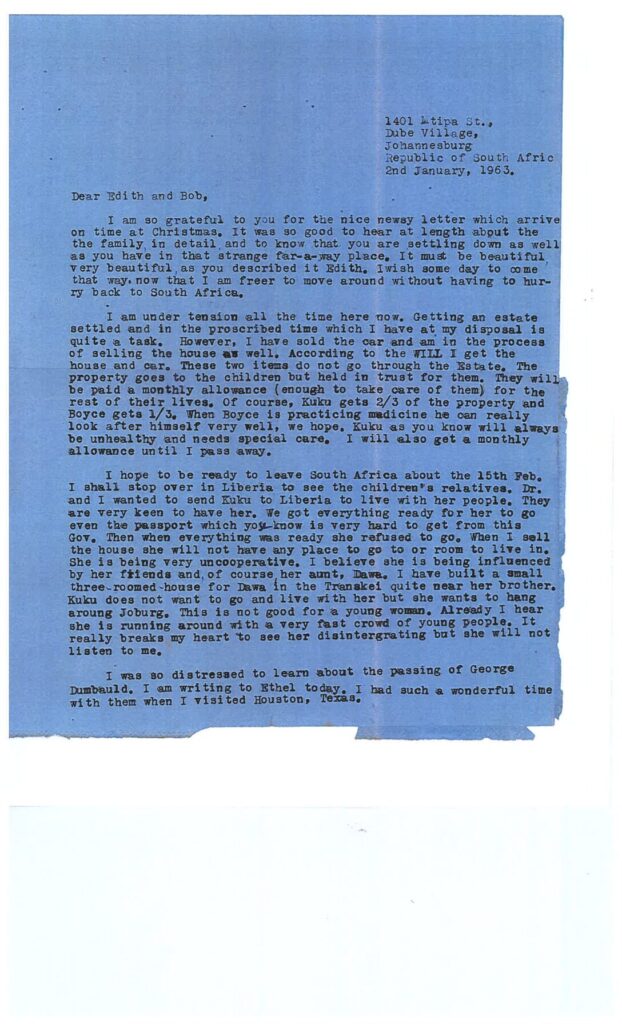
Madie Xuma writes to Edith (January 20, 1970) expressing shock at the news of Edith and Robert's separation. Madie will be traveling to California in February and would like to spend time with Edith in Houston on the return trip.
